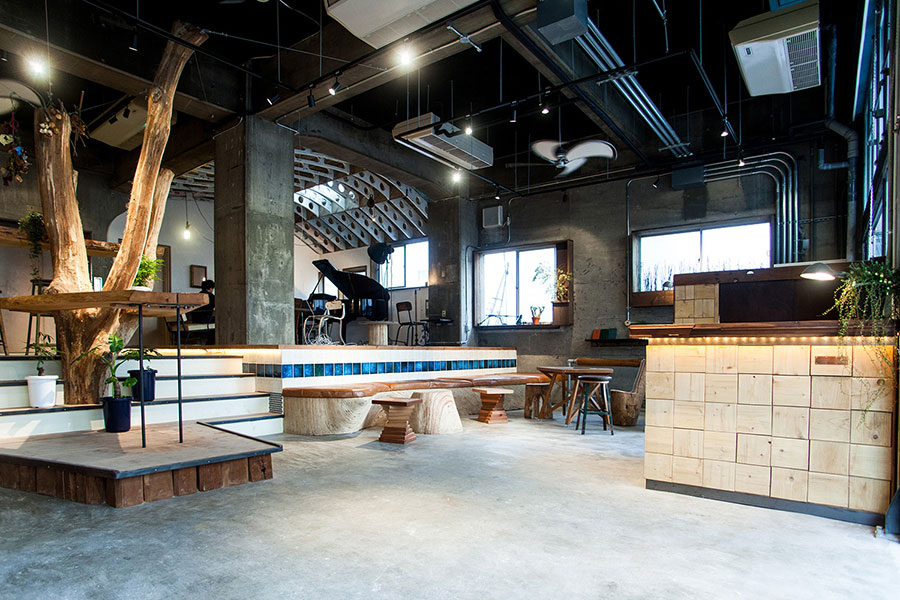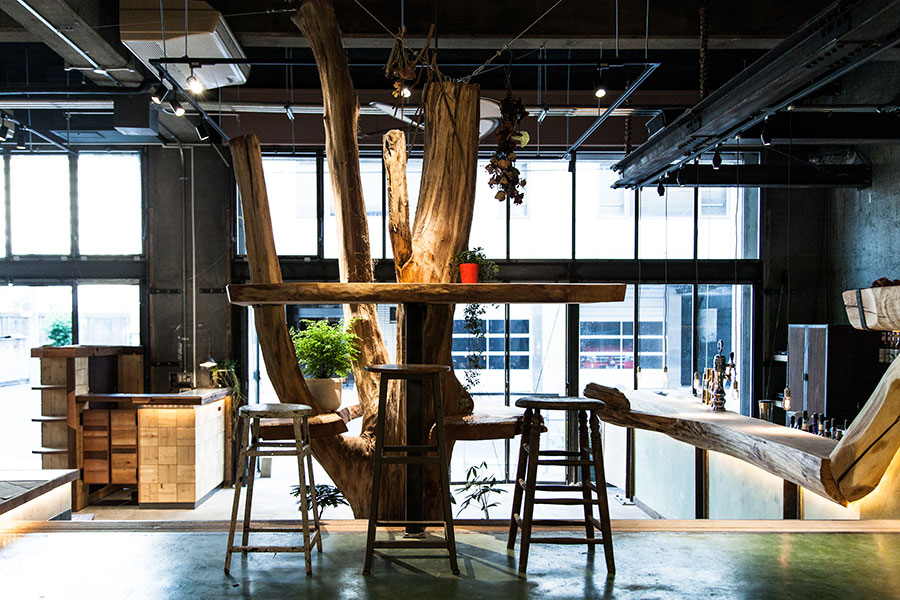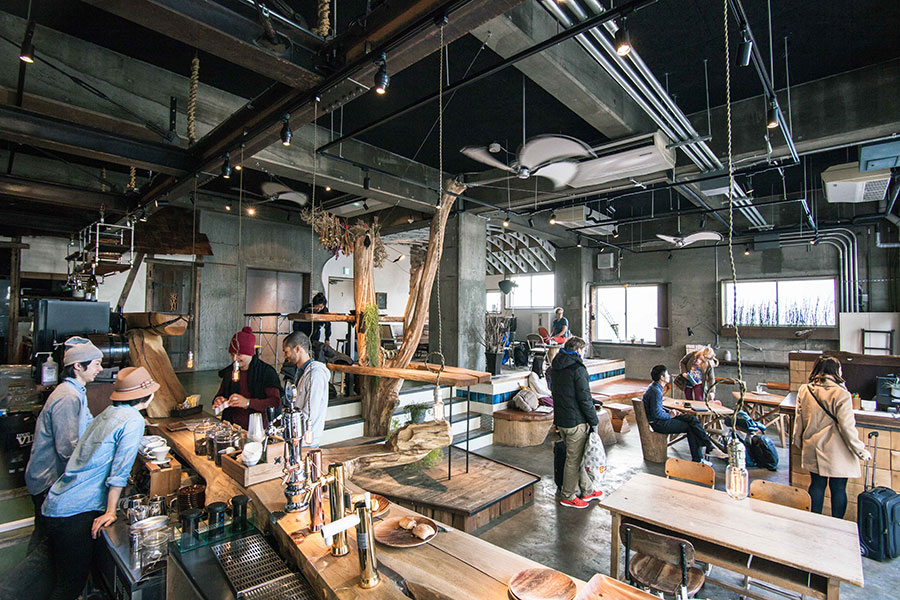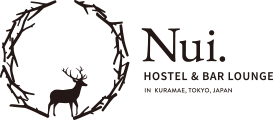STORY
A history of Nui in chronological order.
From encountering the property and naming, to renovations and creation.
01
Encountering the property
– From toy company warehouse to hostel.
You could say that the history of Nui began 3 centuries ago in the 9th year of the Kyoho period (1742), with the founding of the original owners of the building, the well-established toy company, the Masudaya Corporation. It was with their understanding, support and permission for change that we, the young team at Backpackers’ Japan were able to begin creating Nui in 2011, in the then widely unexplored Japanese guesthouse and hostel market.
Still a fledgling company consisting of several executive members and one employee, all in our mid-20’s, Backpackers’ Japan was founded in, and built our first guesthouse ‘toco.’, Iriya, in 2010, and were keenly looking for a second property. In good timing, towards the end of 2011, the Masudaya Corporation put what was then one of their toy warehouses in Kuramae on the property market and was quickly noticed by the young team at Backpackers Japan.
The property – a warehouse with an unusually open space, and timing could not have been more fitting. After our first visit, we were certain that there would not be a comparable opportunity in the likeness of what the Masudaya Corporation’s toy warehouse had to offer Backpackers’ Japan. After opening the industrial sized shutters to a cavernous 160 square meters of floor space and a ceiling height of 4.5 meters for the first time and being exposed to a view that would forever expand our vision of possibilities, our then young team instinctively knew that we had found what we were searching for. We made the choice then and there, and instantly began financial planning on renting the property.
Thanks to the Masudaya Corporation’s trust and interest in Backpackers’ Japan’s future vision for the iconic building, the creation of Nui was able to go ahead, and the historic transformation from a toy warehouse to a hostel was able to come to fruition.
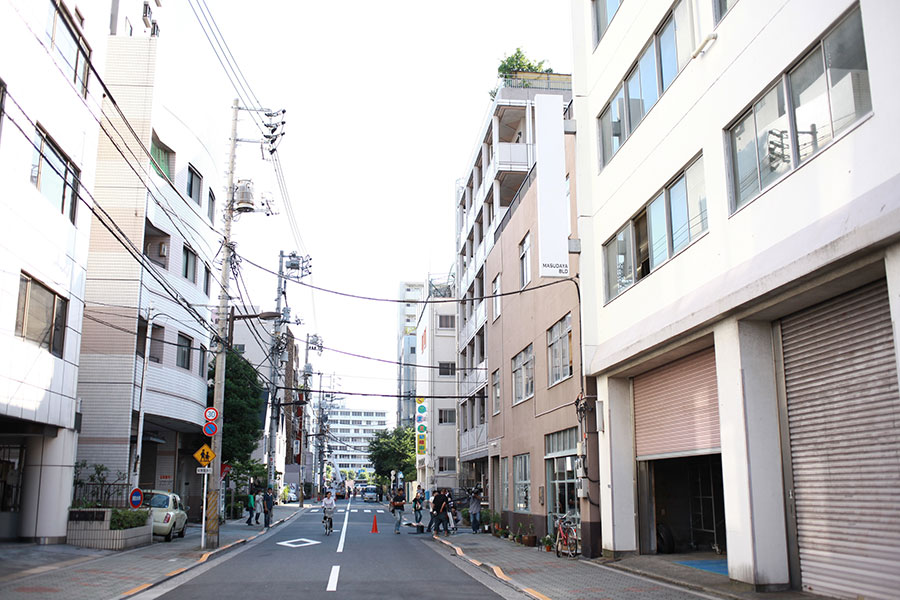
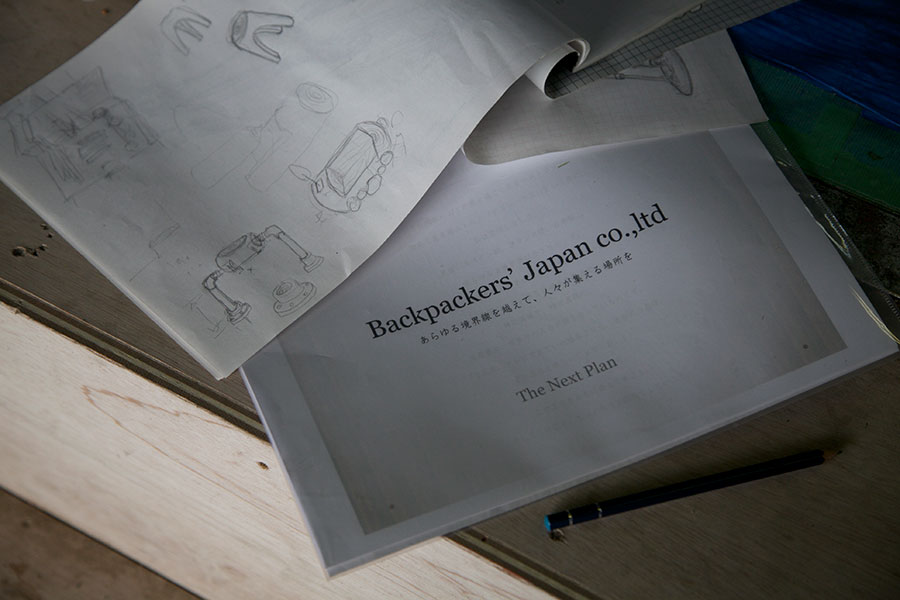
02
The creation of a new space
– Bringing the natural outdoors in.
The creation of Nui was conducted in collaboration with the Watanabe-Ya building team, who helped us previously with the renovations of toco., and interior designer Tadashi Azuno, who was at the time a freelance worker. From the beginning, we wanted to be able offer the people around us a space that blurred the boundaries of the indoors and natural outdoors. Therefore the understanding of our vision from all members involved was paramount to the creation of Nui.
Our major lead in achieving such an environment was the ground floor, with its vast panoramic windows letting in abundant natural light, and breezy airflow. In order to create our ideal space, we decided to work beyond the boundaries of owner – Backpackers’ Japan, builder – Watanabe-Ya and designer – Tadashi Azuno; instead working as one team, in an effort to create a bar lounge mimicking the natural outdoors where one can freely enjoy the environment and surrounding company. Where one can turn to the person beside them, shake their hand and say cheers.
As one team, we worked late into the evenings, always discussing how to move forward, and after designing the outline of the interior we decided to travel to Niseko, Hokkaido in order to physically bring back into Nui a piece of the great natural outdoors which the North of Japan so majestically offers. We chose, felled and brought back to Nui an ishinara tree and tamo tree, processing and arranging accordingly on site. The re-structuring and rebirth of these trees came to represent what was to become Nui.
So much of our effort went into designing a space to make our guests feel as though they could enjoy it with a sense of outdoor freedom – the cylindrical stools made of tree trunks, the timber pentagonal tables, the wavy timber sofa, the bar counter and the single standing tree. Nui was completed after 4 months of renovations with the dedicated work of 14 carpenters and various other tradespersons and creators from all over Japan. With their support and shared vision, we were able to successfully build Nui into a space that brings the natural outdoors in.
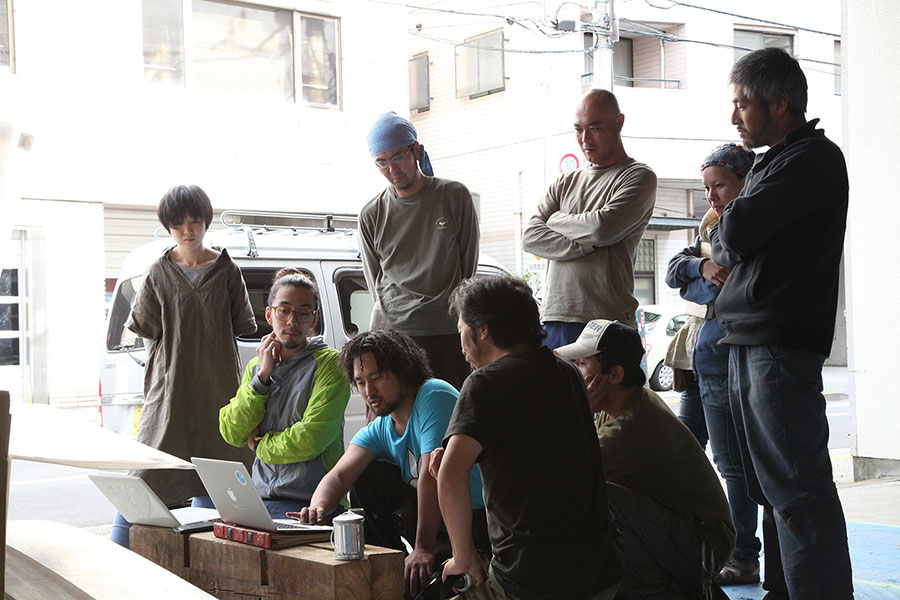
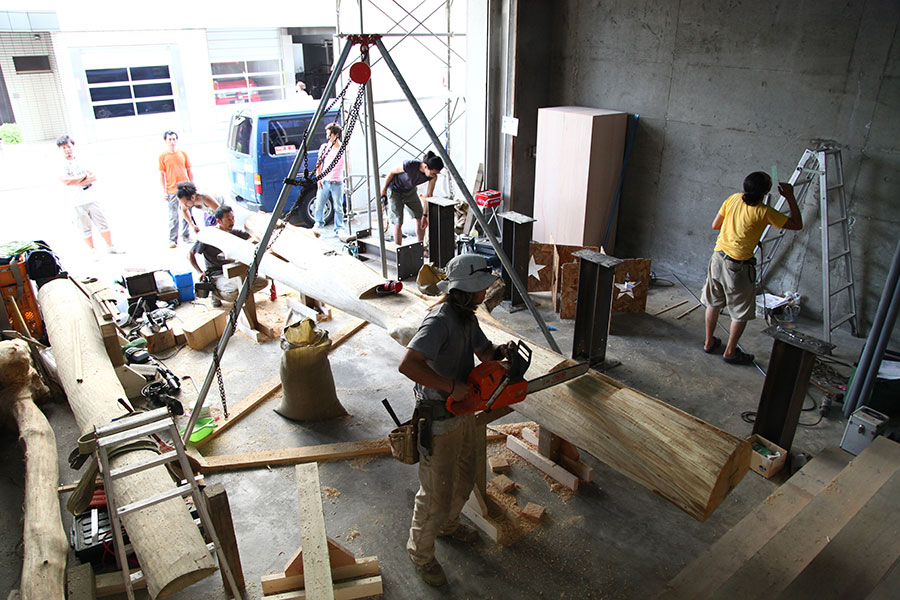
03
The weaving together of a legacy,
the traveler and the neighbourhood.
From the beginning, we were adamant to build Nui, not by monotonously following a strict set of instructions, but by creating a space through mutual respect and understanding for one another’s strengths and professions, and through constructive discourse. The passion felt in the beginning of such a work environment and the long-lasting strong and personal bonds between the builders and designers led us to the naming of ‘Nui.’ – an abbreviation of the Japanese word ‘te-nui’, meaning ‘hand-woven’ and symbolising the organic weaving together of all people involved with Nui.
Since opening our doors in September of 2012, the years have slipped passed in what seems to us such a short amount of time, and although in that time the staff of Nui has come and gone, the mutual respect of one another’s individuality has not changed. On the contrary, it is each new staff member’s individual disposition towards each other and our guests that we value and actively incorporate into building a unique Nui and its legacy.
Through a work ethic based around the weaving together of people and place and the mantra of working as a collection of passionate individuals, we have been able to create a unique and personal style of hospitality for both travellers and locals alike. In addition, by attaching the café, bar and lounge together as one in such a historic building, Nui has provided a space in the Kuramae neighbourhood where travellers and locals can comfortably share a space together regardless of social and cultural boundaries. A space where the traveler can live the every-day life of the local, and the local can live the joy and excitement of the traveler.
With the inherited responsibility of the historic building and respecting those who helped transform Nui into what it is today, we will continue to weave together history, the traveler and the neighbourhood through Nui.
